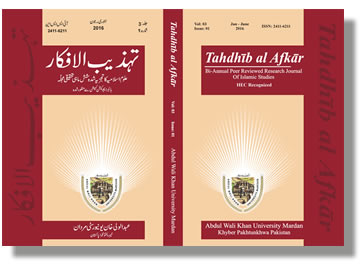Marriage (Nikᾱḥ) in Islam A Critical Appraisal
Abstract
In pre-Islamic era, women were victim of gender discrimination and inequalities. The phenomenon of superiority and inferiority was practiced in the society where women were considered inferior to men. The era of Islam introduced the place and status of woman and, also, declared that woman should be treated with honour in societies of Muslim communities. However, the true spirit of Islam has to be implemented for the welfare of humanity and religiosity. The free consent of a woman before giving her hand in marriage (Nikᾱḥ) has to be attained but more often this right is being violated. The status of a marriage, without a Wali’s consent, of a girl who has attained her puberty is still questionable. Another menace relating to marriage is dowry, which has become a source of contention between the two partners. However, this research article is critical discussion and thorough analyses of case laws to dig out the root causes and suggest solutions which could help two parties of marriage.





